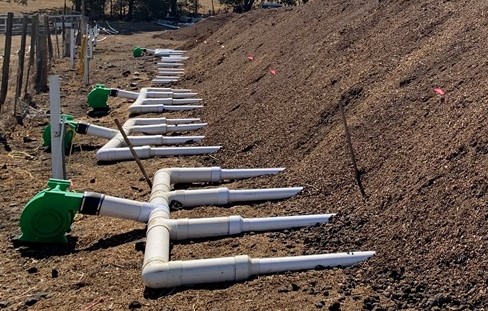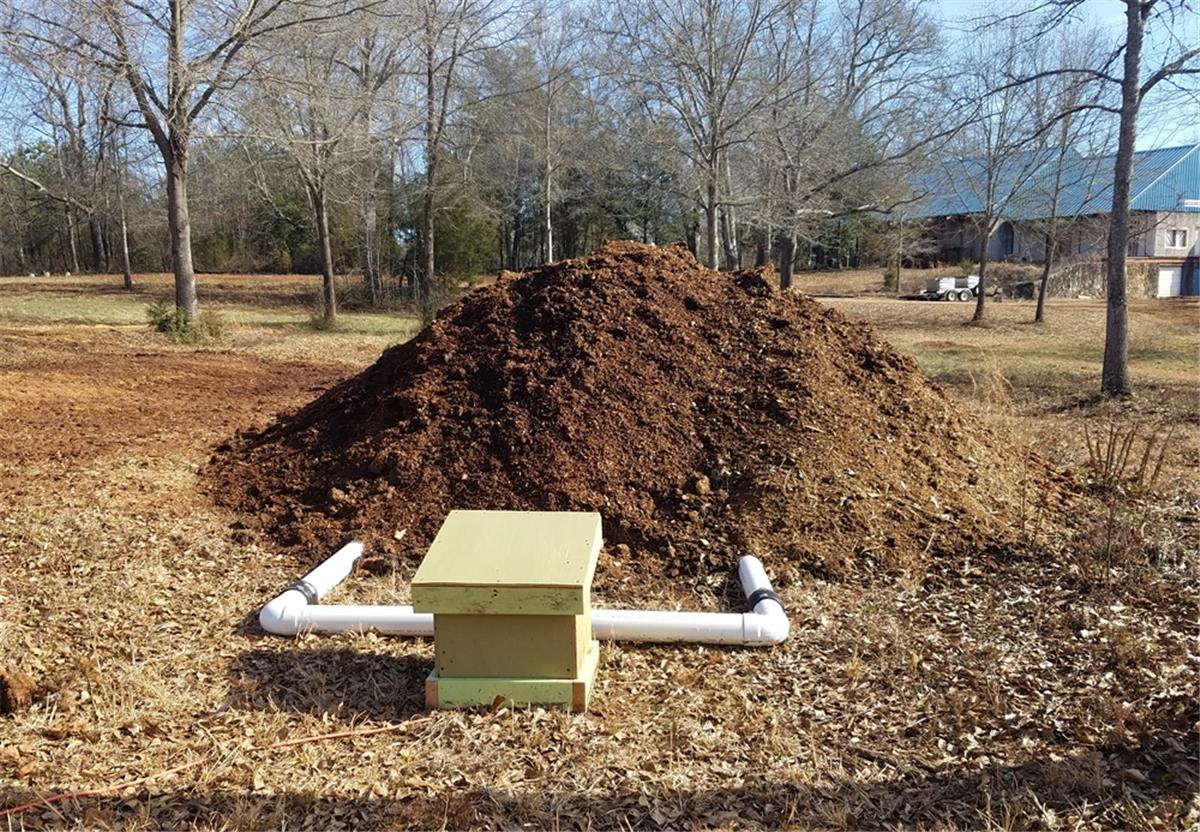Compost Aeration
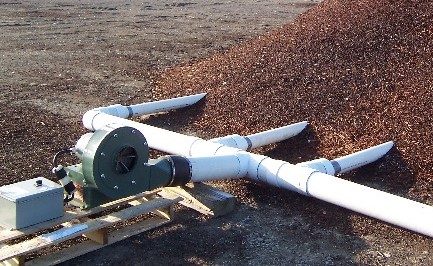
AERATION IS THE SECRET TO COMPOSTING
The Aerated Static Pile (ASP) is the simplest and least cost approach to composting large volumes of organic waste materials. The ASP System is ideally suited for facilities that manage large volumes of livestock manure, yard debris, food scrap waste and other challenging feedstock materials.
NO TURNING REQUIRED
INSTITUTIONAL COMPOSTING - Institutional compost systems are like municipal compost systems in terms of the organic feedstocks that they process. These materials include landscape debris, food scrap waste, animal manure, wastepaper products, and biosolids. Institutions that can take full advantage of on-campus composting include colleges and universities, corporate campuses, hospitals, prisons, military bases, retreats, and summer camps.
MUNICIPAL COMPOSTING - Municipal compost systems generally manage the full spectrum of organic wastes collected from local communities. These wastes include landscape debris, pre- and post-consumer food scrap waste, animal manure, roadkill, and biosolids.
COMMERCIAL COMPOSTING - Commercial compost systems generally manage a narrow range of feedstock materials in relatively large volumes. Fish waste, grape pumace, fruit pulp, greenhouse residuals, and some agricultural / livestock by-products such as beef paunch manure and poultry offal.
AQUACULTURE COMPOSTING - There are many fish farms, hatcheries, and fish processing plants in Canada. Add fish waste to a compost mix pile with temperatures exceeding 131 degrees F. and within 3-days there is no evidence of fish remains. There is no “fishy” odor and will not attract pets or wildlife. It is nutrient-rich and full of beneficial microorganisms.
VERMICOMPOSTING - Whether you plan on selling your finished compost, vermicomposting will greatly enhance its quality by allowing the worms to perform their magic in your stockpile.
AGRICULTURAL COMPOSTING - The volume of organic by-products derived from agriculture is enormous. Manure and animal mortalities are a reality for every farm that raises dairy cows, beef cattle, chickens, turkeys, and pigs. The same is true for "recreational" livestock such as horses, alpacas, and llamas. Considering the number of livestock being raised in the world today, the potential for adverse impacts to our land, air and water resources is incalculable.
BENEFITS of COMPOST AERATION
Mitigates impacts to surface and ground water resources.
Produces high quality compost in 30 - 60 day.
Eliminates pathogens, parasites, and weed seeds.
No odors, no impact to air quality, reduced volatile organic compounds and greenhouse gases.
No Vectors like rodents, flies, and birds.
No pile turning. Greatly reduced cost of labor, fuel, and equipment use / maintenance.
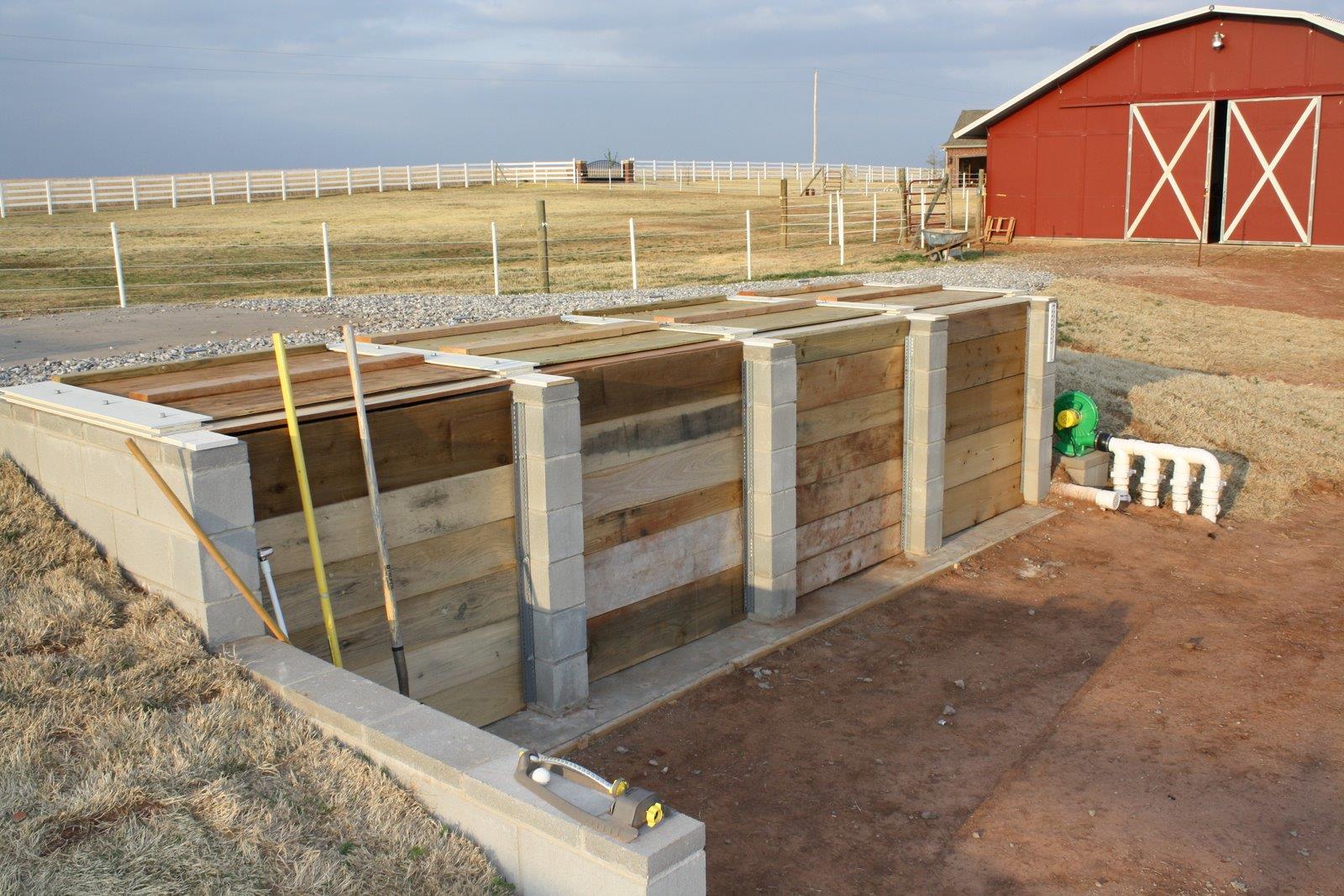
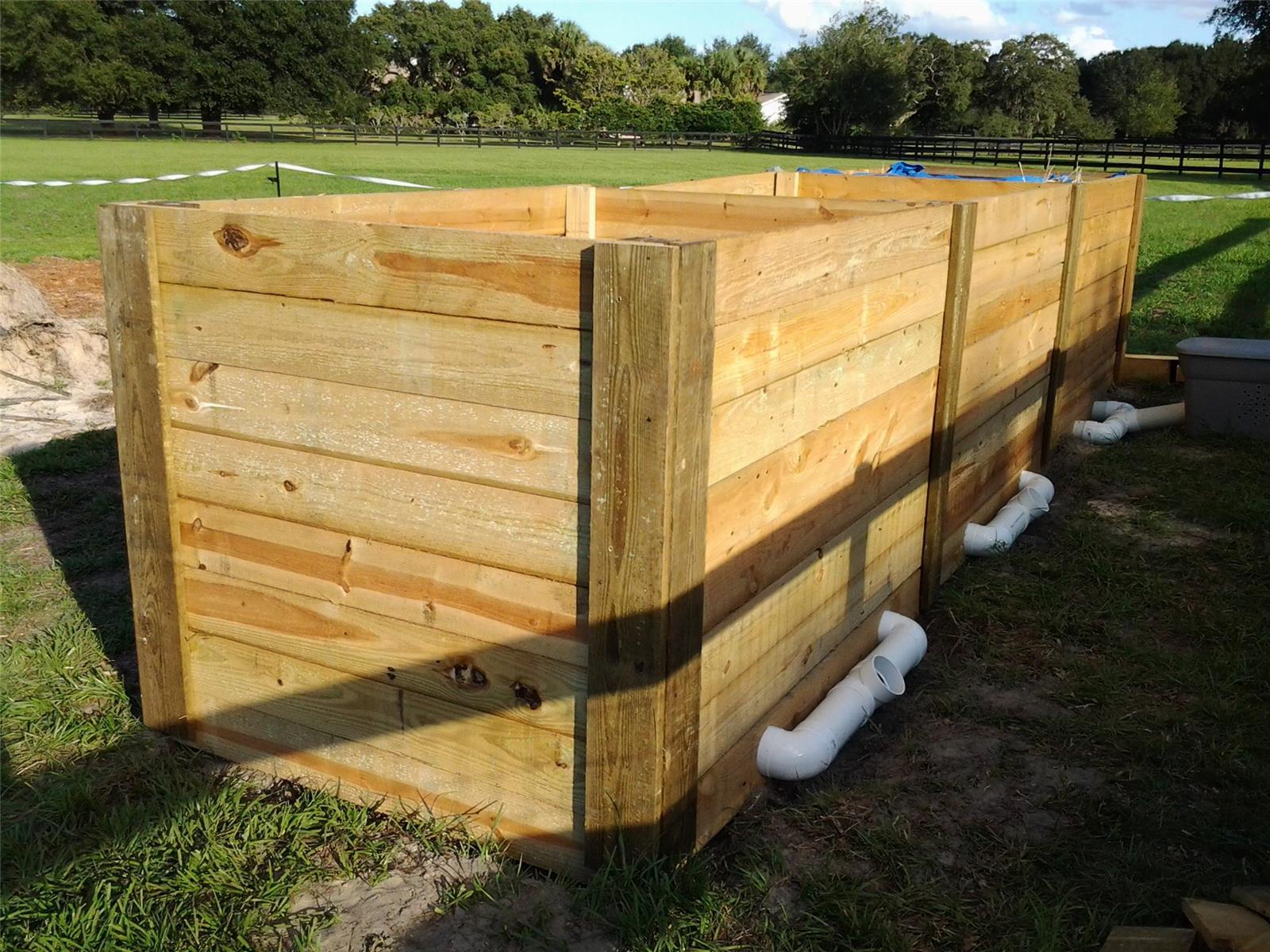
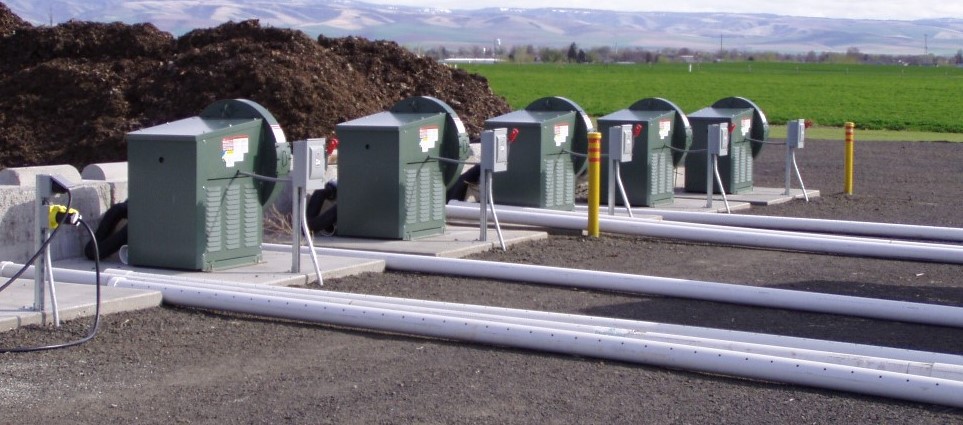
MANURE AERATION


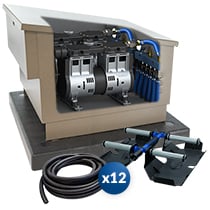
Not all manure being the same, therefore a variety of systems should be reviewed for each specific application.
There are two types of aeration systems available.
Surface Aeration
Surface Aeration pushes high volumes of water/wastewater/manure into the air, causing the top of the water to splash.
By physically breaking apart the water, it creates more surface area for gas exchange.
This can actively add large amounts of oxygen to the water or lagoon quickly.
Diffused Aeration
Bottom aeration works by pumping air into a diffuser that sits at the bottom of your body of water or lagoon.
The diffuser releases bubbles that rise through the liquid column. These bubbles entrain vast amounts of dead, bottom water and carry it to the surface where harmful gases, such as methane and sulfur compounds can vent into the atmosphere and oxygen can enter the water.
The efficiency of this style of aeration is directly proportional to how much water the bubbles carry.
Placing multiple bottom aeration devices in a lagoon ultimately allows for better oxygen circulation.





